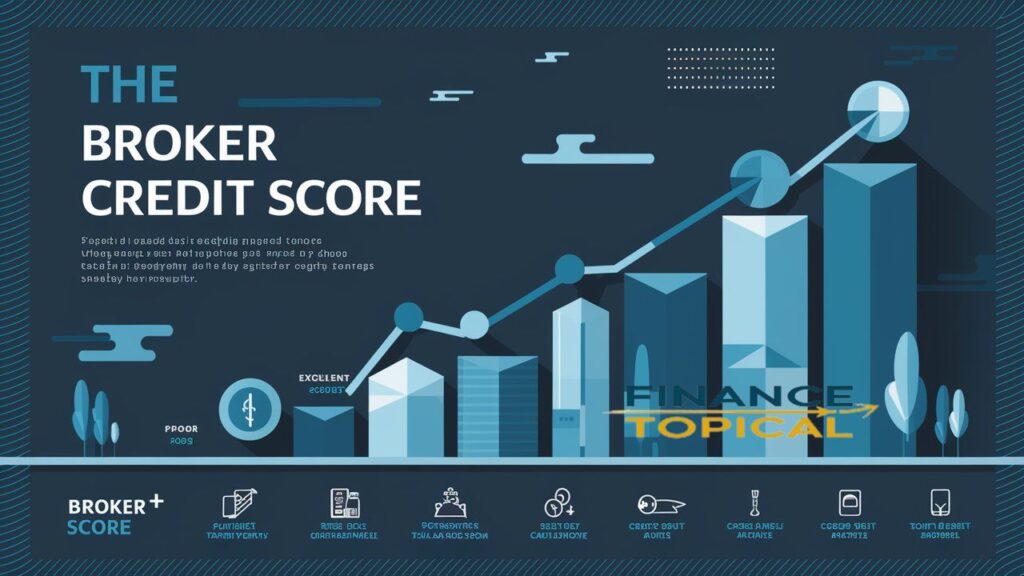Selecting the right freight brokerage to work with is a crucial decision for any trucking company. You are entrusting them to find you loads, negotiate rates, arrange shipments, handle paperwork, and manage payments. An unreliable or unscrupulous broker can seriously impact your business success and revenue. That’s why broker credit score and trustworthiness upfront is so important.
One of the key factors to evaluate is their credit score and payment history. This provides insight into the financial stability and reliability of the brokerage. In this article, we’ll cover:
- Why a broker’s creditworthiness matters
- What credit scores indicate about financial risks
- How truckers can check a freight brokerage’s credit score
- What red flags to watch out for
Understanding these key areas will help you make informed choices on broker partnerships to minimize unpaid invoices and maximize growth.
Key Takeaways on Broker Credit Checks
Checking freight brokerage credit protects your company from revenue risks of non-payment. Here are vital takeaways:
- Broker credit indicates potential for financial issues impacting invoice payment
- Scores below 70 raise concerns; 87+ is low risk territory
- Soft checks provide snapshot, hard checks or creditors get full details
- Watch for red flags like bankruptcies, disputes, delays, and consistency issues
- Include credit checks in full broker vetting process
Why a Freight Broker’s Credit Score Matters
Your trucking company puts in major effort hauling loads facilitated by a freight broker. So you need confidence you’ll receive full and timely payment for each shipment. Low broker credit scores or a history of late payments should raise red flags.

Here are key reasons why every carrier should vet broker creditworthiness:
- Avoid non-payment – Brokers with low credit or financial problems may default on invoices. This directly impacts your accounts receivable.
- Reduce revenue risk – Even sporadic late payments can strain cash flow, especially for small trucking companies.
- Check reliability – Financial issues may correlate with unprofessional business practices that could leave you hanging.
- Gain peace of mind – Good credit means less worry about getting paid for each load.
Evaluating broker credit scores lets you minimize revenue risk and avoid potential payment issues down the road.
What Credit Scores Indicate About Financial Risks
Consumer credit reports and scores help lenders assess risks for loans, credit cards, mortgages, etc. Similarly, business credit reports indicate risks in paying business expenses and invoices.
According to Ansonia Credit Services, some key factors that influence freight broker credit scores include:
- Payment history – The biggest factor. On-time payments improve scores, late payments hurt.
- Timeliness – Fast invoice payment helps, long delays or non-payment damages scores.
- Business practices – Professional processes improve rating, sloppy practices hurt.
- Industry longevity – Longer history with good practices typically yields better scores.
- Financial problems – Bankruptcies or collections seriously damage ratings.
Brokers with credit scores below 70 may be considered high-risk with more potential for payment issues. Scores of 87+ indicate low risk and financial stability. Know that market fluctuations can also impact scores over time.

How Truckers Can Check a Broker’s Credit Score
Carriers have a few options to verify freight brokerage credit scores:
Soft Credit Pull
A soft inquiry allows you to access their credit report without impacting their score. Services like Ansonia Credit Services provide soft pull reports including:
- Credit score
- Payment trends
- Collection red flags
- Bankruptcies
- Days to pay
This gives a snapshot of financial risk. But full details may require a hard credit check.
Ask Directly
Simply request credit reports or scores directly from the broker. This relies on transparency from brokers which can be hit or miss. Offering to share your own score first helps.
Hard Pull
You can become an official creditor to run hard checks via credit agencies like Experian, Equifax, etc. This gets full details but temporarily impacts their credit rating. The process also takes more effort.
Review Payment History
Checking past payment history on loads gives insight beyond scores alone. Delays, disputes, or problems could indicate risks even with good credit ratings. Document issues for future reference.
Evaluating Credit Reports: Red Flags to Watch For
When examining broker credit reports, watch for these potential red flags:
- Low credit scores – Below 70 indicates higher financial risk
- Late payments – Even sporadic delays should raise concerns
- Disputes/collections – Unresolved issues suggest poor business practices
- Bankruptcies – Serious indicator of financial problems
- New companies – Unproven history and credibility
Use credit checks along with other vetting like confirmations of authority, insurance, bonding, certifications, customer reviews, etc. to validate broker credibility across the board.
Conclusion
Conducting due diligence on brokerages before signing agreements reduces future headaches. Don’t leave payments up to chance – run thorough credit checks for peace of mind. Reach out to discuss our credit analysis services tailored for the trucking industry.

Samuel is a finance expert with over a decade of banking and investment experience. He provides readers with practical, actionable advice on personal finance topics ranging from retirement planning to taxes. Samuel combines his professional knowledge with his passion for writing to make complex financial subjects easy to understand. When he’s not publishing articles, you can find this local dad exploring the city with his family.










